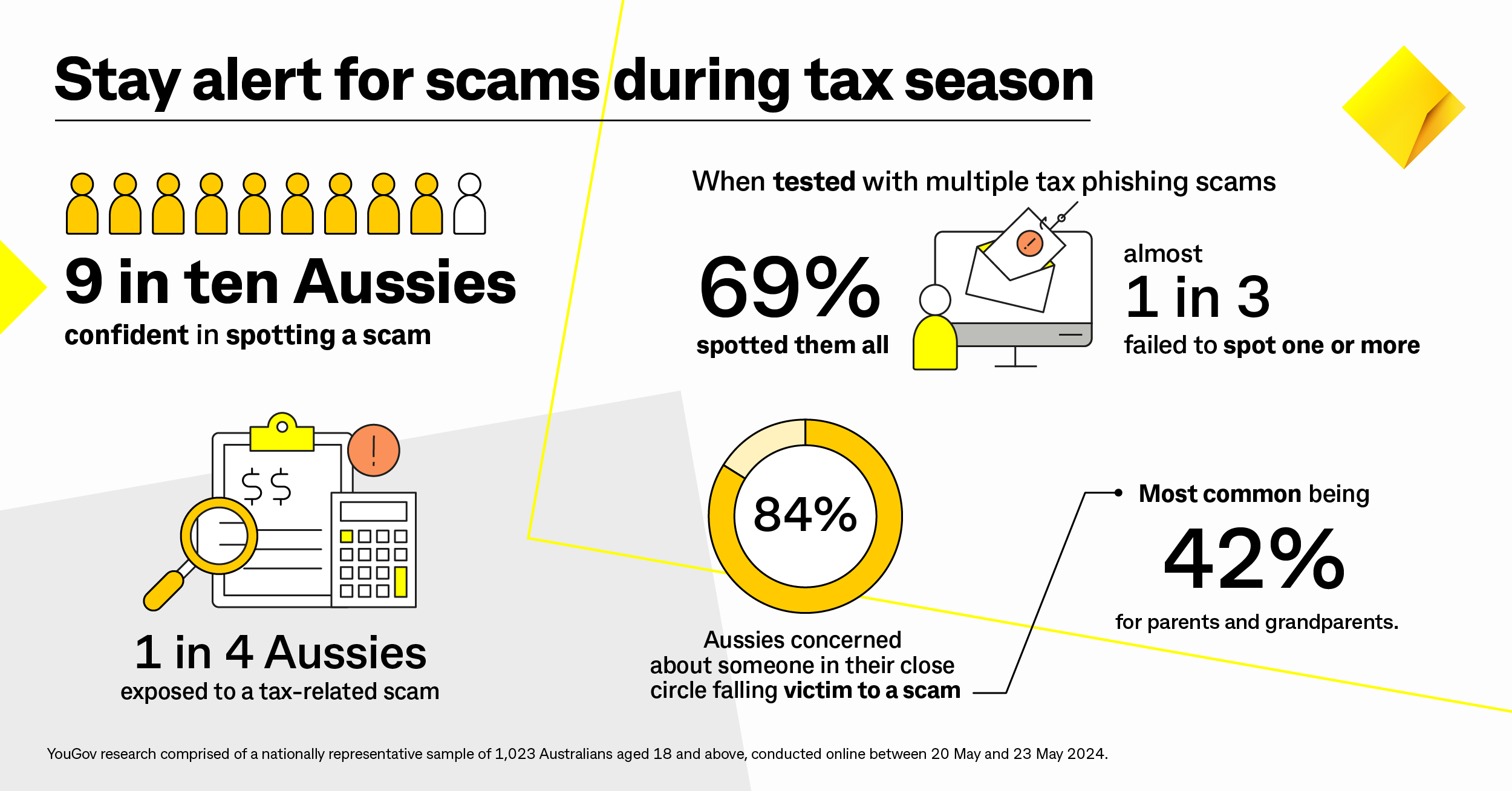While most Australians are confident in spotting scams, CBA urges vigilance during tax season

The Commonwealth Bank of Australia (CBA) is urging taxpayers to remain vigilant during tax season as new research has revealed that almost a third of Australians fail to spot tax scams.
The study, which tested various tax phishing scams on individuals over the age of 18, found that only 69% could accurately spot all scams.
Despite this, nine out of 10 respondents expressed confidence in their ability to detect fraudulent SMS or emails.
The research also highlighted that approximately one in four Australians have encountered a tax-related scam and with millions awaiting tax returns in the coming months, scammers are expected to exploit this period.

SMS phishing scams often involve impersonators of myGov and the Australian Tax Office (ATO) attempting to collect personal information, including bank card details. These messages contain links to counterfeit websites designed to look authentic, where victims are prompted to enter their card details, leading to potential theft.
The National Anti-Scam Centre (NASC) reports that phishing is the most common scam, followed by false billing scams and identity theft.
“While it’s encouraging to see a majority of Aussies were confidently able to spot scams when tested, concerningly almost a third didn’t correctly spot all of them,” said James Roberts (pictured above), CBA’s general manager of group fraud. “As a nation, we’ve made good inroads into reducing the impact of scams, but we all need to stay vigilant and across the latest scam trends.
“Scammers are the most opportunistic criminals and will actively campaign to capitalise on tax season. Everyone should keep an eye out for text messages and emails impersonating myGov and the ATO. They may appear in a thread of legitimate messages from these organisations.
“The major red flag for this type of scam is the link, which differs considerably from the official myGov and ATO website addresses. If you’re unsure, contact the organisation on a verified phone number or via their official website or app, otherwise delete the text.”
The CBA research also showed that 84% of Australians are worried about someone close to them falling victim to a scam, with 42% specifically concerned for their parents or grandparents.
“Those aged over 65 recorded the highest losses from scams last year,” Roberts said. “It’s important to remind your social network to stop, check, and reject anything suspicious. If you think you’ve been scammed, contact your bank immediately.”
CBA has introduced new detection, prevention, and education measures to protect customers, including the NameCheck feature, which verifies account information.
Last month, CBA warned small businesses against scammers who typically increase their tax scam activities during the end of the financial year.
Want to be regularly updated with mortgage news and features? Get exclusive interviews, breaking news, and industry events in your inbox – subscribe to our FREE daily newsletter. You can also follow us on Facebook, X (formerly Twitter), and LinkedIn.



